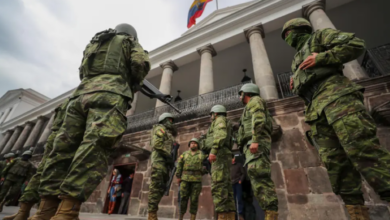Several Governments And independent Scientists Have Asked China For Carte Blanche In the Investigation Into the Birth Of COVID-19 In Wuhan.

What until a few months ago was dismissed as a conspiracy theory, today is treated as a feasible hypothesis: the coronavirus could be created synthetically in a Chinese laboratory. Photo: Pexels
LatiAmerican Post | Santiago Gómez Hernández
Listen to this article
Leer en español: Aumentan las sospechas: ¿China creó el coronavirus?
What until a few months ago was dismissed as a conspiracy theory, today is treated as a feasible hypothesis: the coronavirus could have been created synthetically in a Chinese laboratory. Or at least that is what several governments want to rule out, including the United States at the head of Joe Biden. Since May 26, the US president has asked various national intelligence entities to redouble their efforts to clarify the true origin of this virus.
More and more experts, with reasonable doubts, do not rule out the possibility that the Wuhan Institute of Virology was the birthplace of the virus.
Also read: Why do some people get severe COVID-19? The nose may know
Top Senate Dems on Intel and Foreign Relations committees push Biden to be tougher on China amid COVID-19 origins probe https://t.co/5D31QQh0Pg pic.twitter.com/AUrqVUQrKZ
— The Hill (@thehill) July 28, 2021
According to the New York Times, the Chinese Institute located in Wuhan, not only was experimenting with highly contagious coronaviruses, but evidence has been found that the site's security is insufficient. This suggests that the risk of a virus leak is not so unlikely.
It is still a hypothesis
What is true is that the international scientific community has 2 hypotheses with the highest probability of the creation of the new SARS-CoV-2: a natural mutation in which the virus is born in a random animal and the passed to humans(it is believed that the bat and then the pangolin) or that at the virus was leaked at the Wuhan Institute of Virology.
However, both remain hypotheses that are handled within the scientific field and neither is ruled out. Both have strong arguments to establish themselves as probable, but neither has managed to find irrefutable evidence of their veracity.
First investigation was not enough
A few months ago , a WHO delegation attended Wuhan and concluded that the virus had not escaped from the Advanced Virology Institute that operates in the same city. However, several voices have already expressed their distrust of this report. A group of scientists from several countries jointly published a letter in the journal Science , expressing their concerns and assuring that the report presented by the WHO draws hasty conclusions without sufficient scientific evidence.
So much so, that by March 30, the international health organization contradicted its previous report and assured that "all hypotheses remain open." The same Dr. Tedros Adhanom Ghebreyesus, director general of the organization, requested that more studies be carried out.
Chinese Hermeticism
The underlying problem is not this, since both the hypothesis of natural or artificial origin of the virus still do not have clear evidence. What has generated the most suspicions is China's insistent refusal to allow new studies.
This reluctant stance to allow independent investigations within the Asian giant is not new. The secrecy of the Chinese Communist Party towards any form of "international interference" is clear. However, in the event of any doubts, it leaves a stench of guilt that does not benefit the Asian country either.




